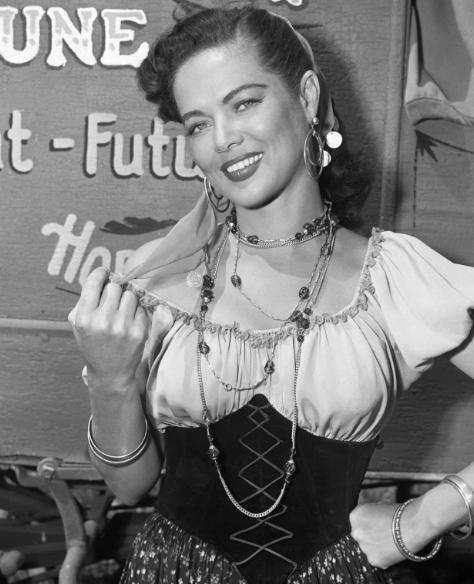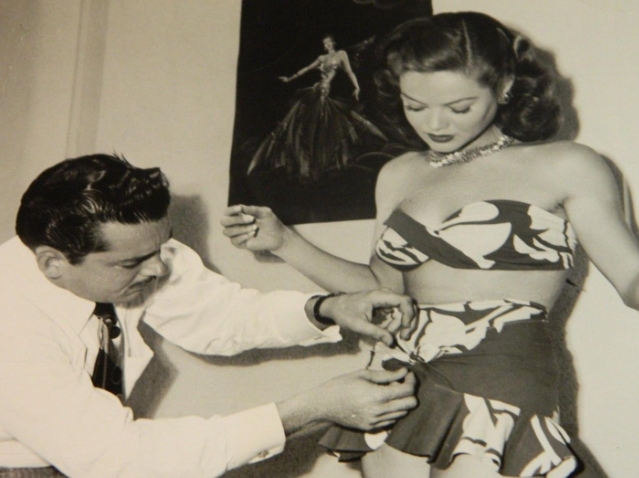Dona Drake ethnicity was rooted in African-American culture and she was not Mexican.
Dona Drake, whose birth name was Eunice Westmoreland, rose to fame as an American singer, dancer, and film actress in the 1930s and 1940s.
Best known for her role as Bette Davis’ American Indian maid in “Beyond the Forest,” she also took on the lead role of a big band singer in the B-movie “Hot Rhythm” in 1944.

Performing as Rita Rio, she headed a traveling all-girl orchestra in the early 1940s, famously known as “Dona Drake and her Girl Band,” among several other titles for her musical and dance endeavors.
Her performance journey began in 1932 under the name Una Villon and by 1935, she adopted the persona Rita Rio, captivating audiences at the iconic Paradise cabaret on Broadway. Eventually, in the early 1940s, she established herself as Dona Drake.
Drake’s life ended due to pneumonia and respiratory failure in Los Angeles, California, on June 20, 1989, at the age of 74. Following her passing, her ashes were scattered at sea.
Read More: Gillie da Kid Ethnicity: Race, Origin & Parents Background
Dona Drake Ethnicity
Dona Drake’s cultural background was African-American, and she did not hail from Mexican descent.
Born on November 15, 1914, in Miami, Florida, USA, she was one of five children born to her father, Joseph Westmoreland, and her mother, Novella. Both of her parents were African-American.
Her genealogical branches stretch across the diverse landscape, firmly grounded in their African-American heritage.
Her family history, as documented by the U.S. Census, reveals that her grandparents comprised a black couple and a couple of mixed black and white ancestry.
She commonly presented herself as Mexican, using the aliases Una Novella and Rita Novella, and was regularly cast in “ethnic” white roles, frequently playing characters from Latin American and Middle Eastern backgrounds despite her black racial heritage.

Dona Drake, a vibrant tapestry of cultures, represents the diversity of heritage that transcends boundaries and echoes through familial connections.
She proudly embraces her multicultural background, recognizing the significance of her African-American heritage in shaping her upbringing and identifying as black.
However, it wasn’t until later years that her fans would uncover her African ancestry, as studio publicity falsely stated she was born Rita Novella in 1920 in Mexico City, leading many to assume she had Mexican roots.
Due to her distinctive features and dark, curly hair, filmmakers frequently selected her for roles requiring an ethnic appearance, such as native, gypsy, or Middle Eastern characters.
Dona Drake Family: Her Husband and Kids
Dona Drake’s husband, William Travilla, was a renowned fashion designer recognized with both Oscar and Emmy awards.
Born on March 22, 1920, William Travilla, an esteemed costume designer in American theatre, film, and television, is famous for his creations for Marilyn Monroe in eight of her films, including two of the most iconic dresses in cinematic history.
Dona and William were married on August 19, 1944, in Santa Monica, California.
Travilla and Drake’s separation occurred in 1956, yet they remained legally married until Drake died in 1989.

Later, on November 2, 1990, Travilla passed away due to lung cancer at Good Samaritan Medical Center in Los Angeles, California.
From their marriage, the duo welcomed one daughter, Nia, into their lives on August 16, 1951, who sadly passed away on October 1, 2002.
Travilla made an appearance on the March 24, 1960, episode of You Bet Your Life, hosted by Groucho Marx, where he introduced his impeccably dressed wife to the audience.
Prior to marrying William, she was romantically involved with Louis Amberg. In 1936, she faced questioning by the FBI regarding the murder of her former boyfriend, Louis Amberg, a known mobster.
Also Check Out: Dallas Liu Ethnicity: Is He Indonesian Or Chinese?


She was “white passing” and choose to passed for Latina/white and denied her African American heritage. Her entire ethnicity was a lie. This article glorifies her as embracing her multicultural heritage, which is completely false and ignores the truth and the disassociation Dona had about herself and her identify. She played a character her whole life for a career on Hollywood.